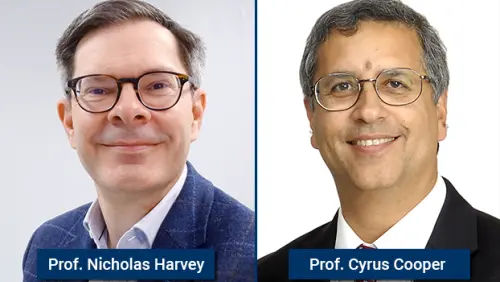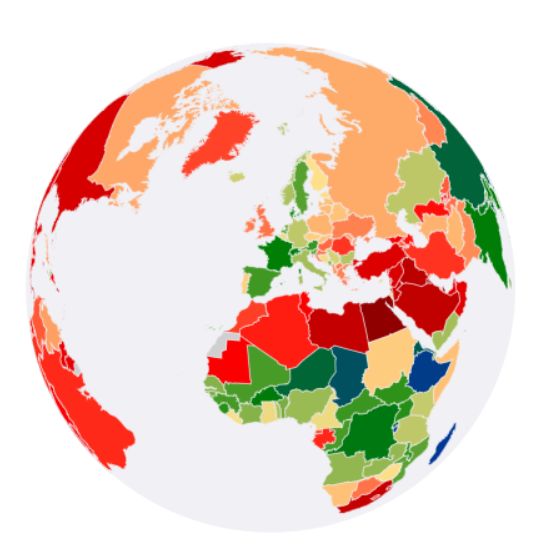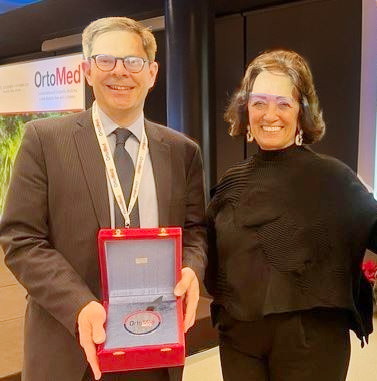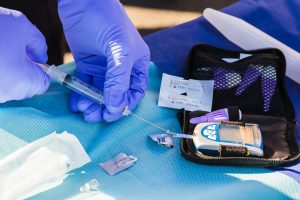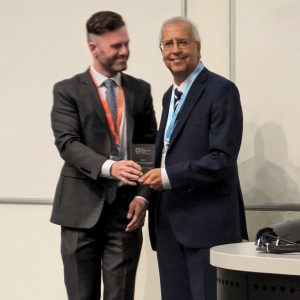[vc_row][vc_column][vc_column_text]New research in the Journal of Bone and Mineral Research demonstrates associations between lower bone mineral density and worse cardiovascular health in both men and women.
Investigators at the University of Southampton’s Medical Research Council Lifecourse Epidemiology Unit (MRC LEU), in collaboration with Queen Mary University of London, used the internationally unique UK Biobank cohort to investigate links between bone and cardiovascular health. They used a combination of imaging and blood biomarker data to investigate the relationship together with potential underlying biological pathways in the largest sample of people reported to date.
Osteoporosis and heart disease are important public health problems. These conditions share a number of risk factors such as increasing age, smoking, and a sedentary lifestyle. Research shows that there may be links between the two conditions even after accounting for shared risk factors. This suggests that there may be biological pathways linking the two conditions. Investigating such links is important as they may represent targets for novel drug therapies, which could reduce the burden from both bone and heart disease. However, current research studies lack objective measures of bone and heart health and are often limited to studies of small numbers of people for relatively short periods of time. This means, that we cannot be entirely confident in the accuracy of their findings.
The researchers found that lower bone density was linked to greater arterial stiffness (indicating poor cardiovascular health). This relationship was consistent for bone men and women and in pre/post-menopausal women. They also found that individuals with poor bone health had an increased risk of dying from ischaemic heart disease. These links were not explained by shared risk factors or traditional cardiovascular risk factors. In order to explain potential biological mechanism, the researchers tested the importance of a wide range of blood biomarkers in mediating the observed relationships. Interestingly, they found that the mechanisms underlying the bone-heart relationship appeared different in men and women.[/vc_column_text][/vc_column][/vc_row][vc_row top_margin=”page_margin_top”][vc_column][vc_column_text]Dr Zahra Raisi-Estabragh, BHF Clinical Research Training Fellow from Queen Mary University of London, led the analysis. She said “Our study demonstrates clear links between bone disease and cardiovascular health. The underlying pathophysiology of the bone heart axis is complex and multifaceted and likely varies in men and women.”
Professor Nick Harvey, Professor of Rheumatology and Clinical Epidemiology at the MRC LEU, University of Southampton, who supervised the work added: “The wealth of information available in the UK Biobank permitted a highly detailed analysis of the complex interactions between musculoskeletal and cardiovascular health, helping to elucidate potential underlying mechanism, and informing novel approaches to clinical risk assessment.”
Professor Steffen Petersen, Professor of Cardiology at Queen Mary University of London co-supervised the project. He comments: “Increasing our understanding of novel determinants of heart disease, such as the bone-heart axis, is key to improving disease prevention and treatment strategies and for improving population health.”
Professor Cyrus Cooper, Director of the MRC LEU, University of Southampton, added, “This study directly complements our programme of research investigating the lifecourse determinants of musculoskeletal health and disease. It illustrates the importance for the University of Southampton and the MRC LEU of our ongoing contribution to the leadership of the large, state-of-the-art, multidisciplinary Imaging Study as part of the unique world-leading UK Biobank resource.”[/vc_column_text][/vc_column][/vc_row][vc_row top_margin=”page_margin_top_section”][vc_column][vc_column_text el_class=”reflist”]Notes to Editors
- The paper “Poor Bone Quality is Associated With Greater Arterial Stiffness: Insights From the UK Biobank” will be available, from 23/09/2020, at: http://dx.doi.org/10.1002/jbmr.4164. The paper entitled is available from Media Relations upon request.
- The University of Southampton drives original thinking, turns knowledge into action and impact, and creates solutions to the world’s challenges. We are among the top one per cent of institutions globally. Our academics are leaders in their fields, forging links with high-profile international businesses and organisations, and inspiring a 24,000-strong community of exceptional students, from over 135 countries worldwide. Through our high-quality education, the University helps students on a journey of discovery to realise their potential and join our global network of over 200,000 alumni. http://www.southampton.ac.uk/
- The Medical Research Council is at the forefront of scientific discovery to improve human health. Founded in 1913 to tackle tuberculosis, the MRC now invests taxpayers’ money in some of the best medical research in the world across every area of health. Thirty-two MRC-funded researchers have won Nobel prizes in a wide range of disciplines, and MRC scientists have been behind such diverse discoveries as vitamins, the structure of DNA and the link between smoking and cancer, as well as achievements such as pioneering the use of randomised controlled trials, the invention of MRI scanning, and the development of a group of antibodies used in the making of some of the most successful drugs ever developed. Today, MRC-funded scientists tackle some of the greatest health problems facing humanity in the 21st century, from the rising tide of chronic diseases associated with ageing to the threats posed by rapidly mutating micro-organisms. www.mrc.ac.uk
[/vc_column_text][/vc_column][/vc_row][vc_row top_margin=”page_margin_top_section”][vc_column][vc_column_text]For further information contact:
Peter Franklin or Steve Bates, Media Relations, University of Southampton, Tel: 023 8059 3212, email: press@soton.ac.uk
Follow us on twitter: http://twitter.com/unisouthampton
Like us on Facebook: www.facebook.com/unisouthampton[/vc_column_text][/vc_column][/vc_row]


